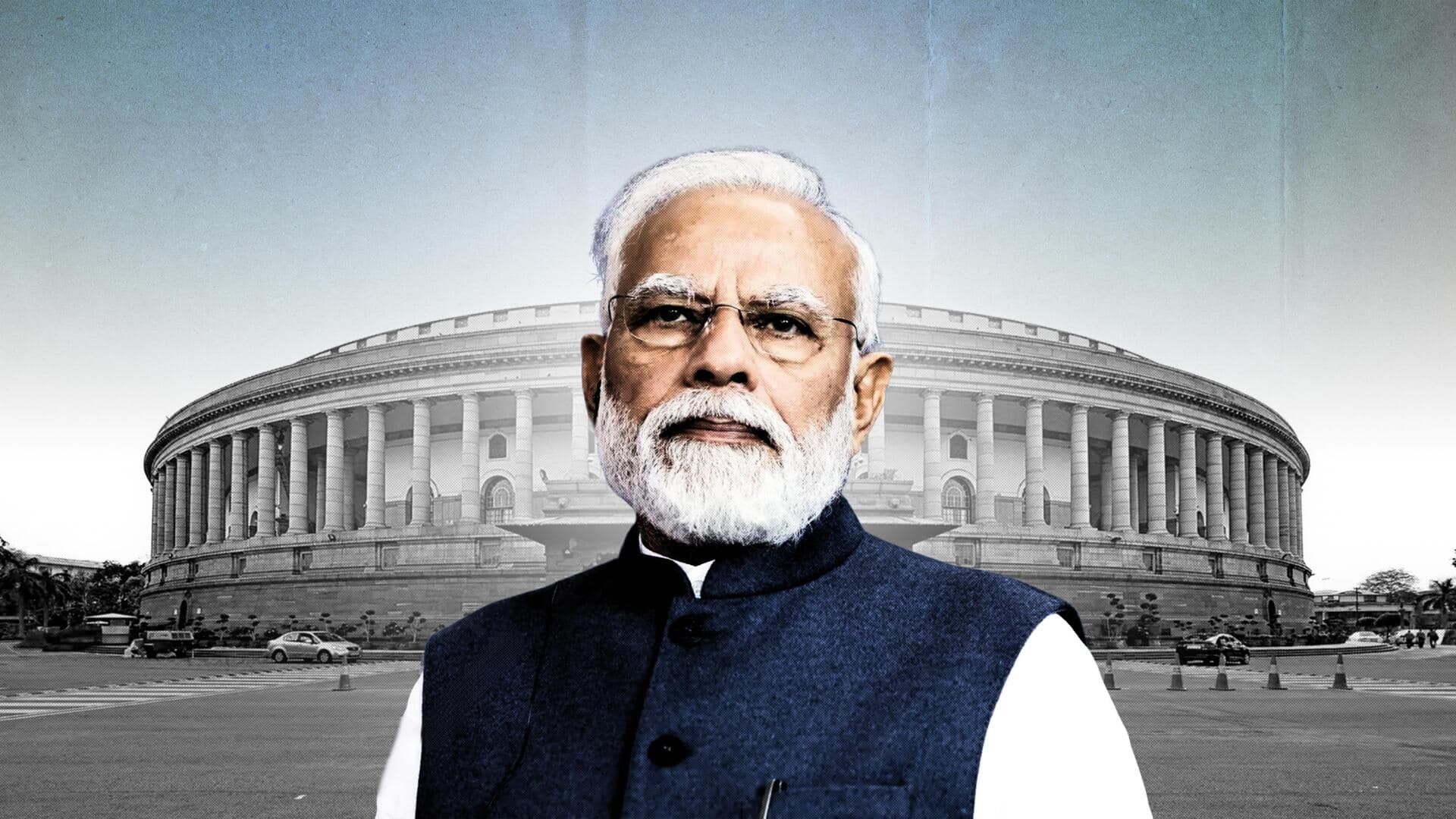
What to expect from no-confidence motion debate in Parliament today
What's the story
The Lok Sabha is set for high-voltage action as the debate over the no-confidence motion against the Centre begins on Tuesday. The opposition alliance will try to corner the government over the situation in Manipur, which has been witnessing widespread ethnic clashes for more than three months. The debate will continue on Wednesday, while the motion will be put to a vote on Thursday.
Context
Why does this story matter?
The Monsoon Session has been witnessing repeated disruptions as the opposition has been demanding Prime Minister Narendra Modi address the situation in Manipur. The government, on the other hand, has accused the opposition of hyping up the issue, avoiding discussion only to impede parliamentary proceedings. Congress leader Rahul Gandhi, who was reinstated as an MP on Monday, will reportedly open the debate on Tuesday.
Details
About no-confidence motion
With India being a parliamentary democracy, a political party requires the support or confidence of the majority of Lok Sabha members to form and run a government. A no-confidence motion is a mechanism provided by the Constitution to check the government's responsibility. In case a government tries to transgress constitutional boundaries, the MPs can collectively vote against it and remove it from power.
Numbers
Ruling alliance's numbers in Lok Sabha
The majority mark in the 543-member Lok Sabha is 272. The ruling Bharatiya Janata Party (BJP) alone has 303 MPs, while the BJP-led National Democratic Alliance (NDA) has 331 MPs. Notably, N Chandrababu Naidu's Telugu Desam Party (TDP), part of the NDA, moved a no-confidence motion against the Modi government in 2018, which was supported by 126 members, while 325 members rejected it.
Opposition
Where opposition stands
The opposition bloc Indian National Developmental Inclusive Alliance (INDIA) has 144 MPs. Meanwhile, the Bharat Rashtra Samithi (BRS)—which also filed a no-confidence motion alongside Congress earlier—the YSR Congress Party (YSRCP), and the Biju Janata Dal (BJD) have a combined strength of 70. However, the YSRCP and BJD, with 22 and 12 MPs, respectively, have declared to support the government to vote against the motion.
Statement
Here's what opposition says
The opposition INDIA bloc moved a no-confidence motion on July 26, which was accepted by Lok Sabha Speaker Om Birla on the same day. The opposition said that although it doesn't have the required numbers, the motion isn't intended to bring the government down but to force PM Modi to appear in the Parliament and address the situation in Manipur.
History
How many no-confidence motions have been moved so far
The no-confidence motion has historically been an instrument to force discussion on a topic. Out of the 27 no-confidence motions so far, only three have carried till date. The VP Singh-led National Front government lost a no-confidence motion in 1990, the HD Deve Gowda-led United Front government in 1997, and the NDA government led by Atal Bihari Vajpayee in 1999.